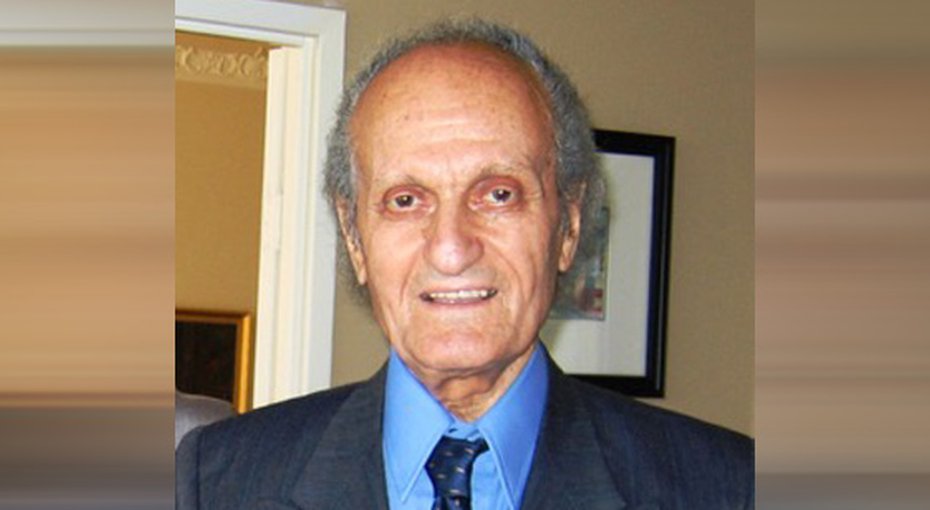Source: www.iranwire.com
Kian Sabeti
Translation by Iran Press Watch

Ten days ago, September 7, 2018 was the last day of life for one of the founders of the Baha’i Institute of Higher Education (BIHE): Dr. Ismail Ghadirian.
Dr. Ismail Ghadirian was born in 1927, in Sangsar in Semnan province. After graduating from the University of Tehran, he was awarded a Ph.D. in Veterinary Medicine from the University of Tehran (1954), a Master’s in Microbiology and Immunology from the Pasteur Institute in France (1963), and a PhD from the School of Science at Sorbonne University in France (1968).
Dr. Ghadirian taught and did research at Tehran University as an assistant professor at the Parasitology and Malaria Institute in the Tehran University School of Medical Sciences after 1956. In 1973 he received his full professorship, and in 1976 he became the Parasitology and Mycology Department Chair at that university.
Dr. Ghadirian’s scientific activities were not limited to the borders of Iran. In collaboration with the World Health Organization (WHO), he worked on the Malaria eradication program in the Balkans and the territories of the former Yugoslavia and Macedonia. Also, for three years (1974 -1976), he worked on research and scientific services in the Department of Microbiology, Immunology and Parasitology of the School of Medicine at McGill University in Canada, as a member of faculty.
With the advent of the Islamic Revolution in Iran and during the Islamic Cultural Revolution era, he was fired from Tehran University, because Dr. Ghadirian, like other Baha’i professors, was not willing to deny his belief in the Baha’i Faith.
In the eventful years of the 1980s, he, because of his love for his country, did not migrate out of Iran, despite the many limitations imposed on him. From 1985 until he retired, for a period of twenty-six years, he was the head of the immunological department of one of the most prestigious private labs in Tehran, the Pathobiology Laboratory Center. During his scientific career, he published forty-four scholarly research papers in the field of parasitology in international and domestic publications.
Dr. Ghadirian, one of the five members of the Board of Trustees of BIHE approved by Indiana University in Iran, provided an opportunity for Baha’i students who had been deprived of a higher education to study in the correspondence department (distance learning) of that University, which encouraged and motivated them to continue their education.
Subsequently, with the establishment of the unofficial Baha’i University in 1987, Dr. Ghadirian took on many responsibilities in its various divisions. As a member of the Council for Medical Sciences; Council for Biological Sciences, the High Council of the Baha’i University, and as a professor for various courses in the fields of microbiology and immunology, he cooperated with the University for nearly three decades.
His perseverance, determination, and success in advancing his work at the Baha’i Science University, which ultimately led to compensating for the inability of Baha’i students to study in Iranian universities, offering them an opportunity to study at the university level, made him one of the most distinguished and most beloved figures in the Baha’i community, an exemplar of social action and academic activity.
In the scientific field, Dr. Ghadirian also carried out significant research activities in Khuzestan and Isfahan provinces of Iran in the field of Iranian parasitology, especially of parasites of the gastrointestinal tract in humans and animals. The results of these studies have been published in numerous articles and have been highly rated by professors in the field both inside and outside of Iran.
Leave a Reply